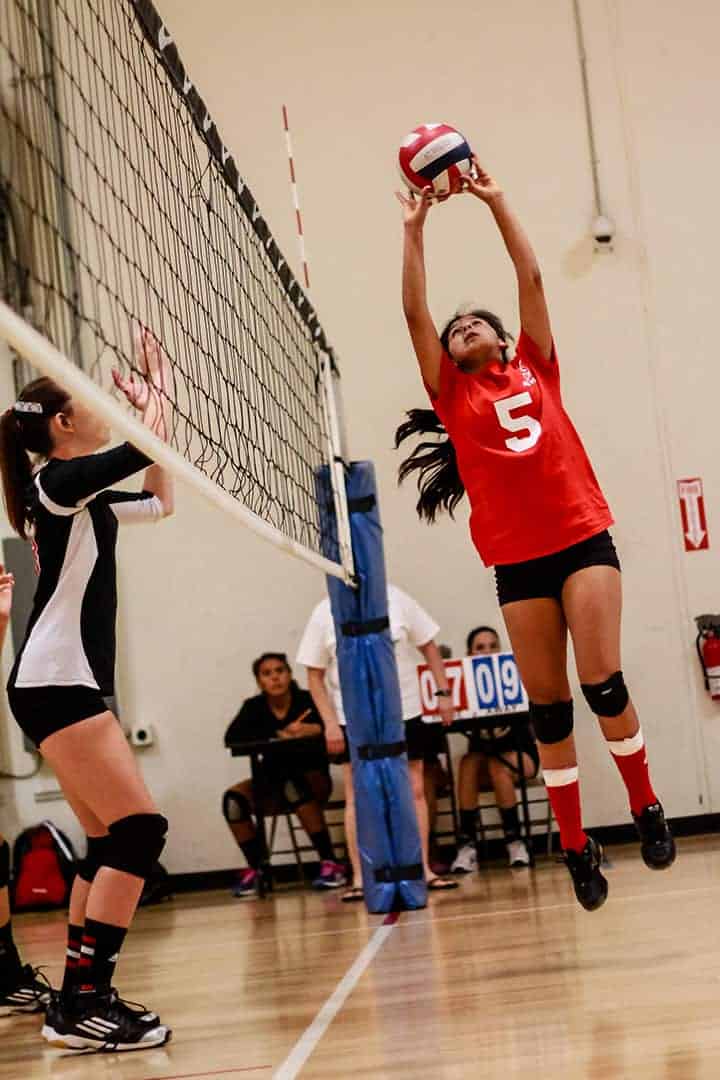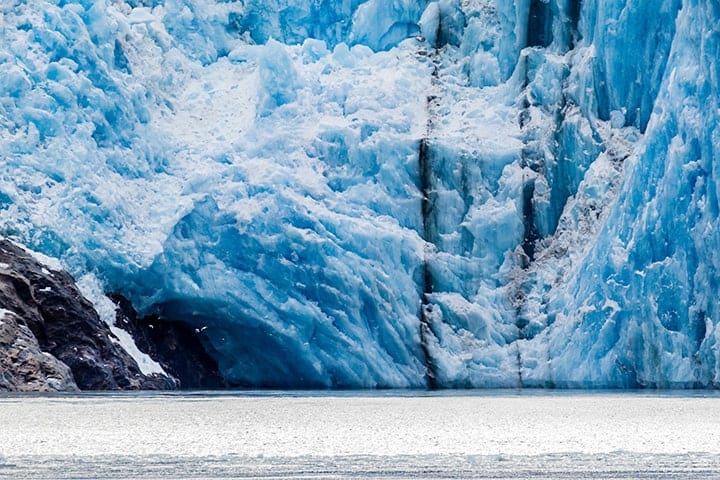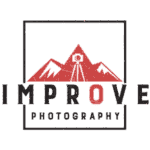I often get approached by friends who are interested in “getting a nice camera.” I always suggest we sit down and talk about the type of photography they are interested in. We also talk about budget. Some of you may be in the position of getting your first DSLR, others may be more serious photographers looking for an upgrade. If you have some money burning in your pocket and you're trying to decide whether to get a new camera or a new lens, I'm hoping I can help you decide.

Reasons for a New Camera
In my mind there are two really good reasons to upgrade your camera:
1. Your camera body can't perform well in low light
About five years ago, cameras started to emerge that took very good pictures at very high ISO levels. This is an aspect of exposure that is tied to your camera body. My first DSLR was a Canon Rebel that only goes up to ISO 1600 (and doesn't do a very good job at that). As cameras started to emerge that performed much better in low light, the decision to upgrade was an easy one. If your camera was made before some of these advances, then it's probably time to upgrade. There are plenty of used camera bodies that perform well in low light and can be bought on a budget. There are newer and more expensive options out there too. As you decide how to upgrade, take note of reason #2 below.
2. I have specific shots I want to take, and my camera body is limiting me.
I always tell people that they should be able to describe a particular type of photography they are interested in (or a specific shot), and be able to articulate how their camera body is preventing them from getting that shot, before they decide to upgrade. If you can outline these reasons, great, then you can rest easy that you are making a sound investment. If not, go back and reflect on what you really want to accomplish with your photography. Think about the type of photography you enjoy, then look at the features available on a new camera that will help you accomplish those goals. A camera body is a serious investment and something better is always around the corner, don't make the decision lightly.
Along those lines, it's very easy to get sucked into wanting the newest and greatest camera out there. The war for more megapixels has been at the forefront of this fight. It's easy to get caught up in the quest for newer and better. Two recent experiences reminded me to keep my focus on having the equipment serve my creative vision rather than relying on equipment to create for me.
Two friends were reviewing my work. One was interested in getting started in photography, another I was giving a print as a gift. In both cases they were inspired by images taken years ago on my Canon Rebel. While the technology on my newer camera body frequently allows me to create images I couldn't create on my old Rebel, I am also certain that in many cases I could create the same image using the old technology.
Reasons to get a new lens
For many of you, a new lens is going to open up a lot of creative opportunities that a new camera body won't. Lenses often have an added bonus, they maintain their value very well compared to camera bodies. If you buy a lens and find you don't use it much, you can often resell it and get back most of your money. Here are a few reasons to buy a new lens.
1. You are shooting with the kit lens
If you are shooting through a cheap lens, putting that lens on a new camera body isn't going to make you feel much better. A kit lens often produces images that are soft and don't produce colors and contrast as well as you might like. They don't have a wide maximum aperture so its difficult to shoot images that have a shallow depth of field. Look for an upgrade that will produce a sharper image, focuses more quickly, or can open to a wider aperture.
2. You want a wide angle or you need to shoot far away.
If you like landscapes, do you have a wide angle lens? If you like shooting wildlife, do you have a telephoto lens? Are you interested in doing macro photography, sports photography, portraits? A lens opens up some creative possibilities that a new camera body won't help you accomplish. Look for photos of the type of photography you are interested in, then look at what equipment is being used.
3. You need better low-light performance.
If you have a camera that shoots well at a high iso, then a new lens can give you even better low light performance by providing a wider aperture. These wide apertures not only gather a lot of light, they also produce bokeh (when part of the image is in focus and the rest is blurred away). This is especially popular in portraits. Having just part of the image in focus gives you some creative options or can allow you to take an undersirable background and make it desirable. A prime lens is usually the way to go if you want to shoot with a wide aperture. Great low light performance and bokeh aren't the only benefits to a prime lens; I've found that taking away the option to zoom forces me to compose more creatively. At smaller apertures, prime lenses can produce very sharp images because they only have to focus across a single focal length. This level of sharpness is difficult to find in even pricey zooms.
4. You want a high end zoom
Don't we all? High end zooms have many benefits, but it comes at a price. They usually have a constant maximum aperture across all focal lengths. This prevents your aperture from changing as you zoom in, which can be frustrating when shooting manual. Image stabilization is also a benefit and will allow you to hand hold your camera 2-3 stops slower than would normally be recommended. Focus speed and sharpness are better than lower end zooms although, as stated before, prime lenses can compete in this department.
At the end of the discussion about buying a new camera body, I stated that in many cases (more than half the time) I could produce the same image on a 7 year old Rebel that I create now with newer technology. When faced with the option of buying a new camera or a new lens, most photographers will recommend the new lens. I would agree in the majority of cases. While I can create the same image on the two different camera bodies, the opposite is true of different lenses. There are images which I cannot create with my current option of lenses. I will frequently rent a lens because I don't have the option to make the image I want with the lenses I own. For this reason, purchasing a new lens over a new camera body is generally sound advice.

Reasons not to buy a lens or a camera
1. You want to take better pictures
If you are looking for a camera to take good pictures for you, you will probably find yourself disappointed (and quite a bit poorer). You can take very bad pictures with very nice equipment. I would know, I've done it. If you can explain to yourself the specific reasons you want to upgrade, you're probably in good shape. For example, if you want to learn to control your exposure by shooting manual and your camera doesn't do that, you should get a new camera. If you want to take pictures of birds, and you don't have a long lens, you probably need a new lens. If you can't articulate the reasons, then study, go out and shoot, challenge yourself with what you have now.
I had a friend that truly admired my photography and was a bit jealous when I showed up one day with a new camera body. Multiple times he made the statement that he wouldn't upgrade unless he could go to a full frame camera. I would challenge him on that notion, since my new camera body wasn't full frame, and I didn't truly think it was necessary for the type of photography he was interested in. He wasn't able to articulate a reason for needing a full frame camera, and when we spoke about photography it sounded like a passing interest rather than an ongoing pursuit. In my mind, he was stuck in a rut of creative disinterest, and he wanted technology to bail him out.
2. You don't have the money
Let's face it, photography is an expensive hobby. One of the best things you can do for your photography is to challenge yourself with the equipment you have right now. If I take a day trip, I'm rarely with people who are as passionate about photography as I am. My friends and family don't want to wait all day while I fiddle with equipment. I will often head out with just my camera and one lens (no tripod). Oh… and I'm usually stuck shooting in the middle of the day. I find this forces me to think, to look for good light (there are ways to pull this off midday), and to learn something new about photography or post-processing. If you allow your vision to drive your photography rather than looking for the equipment to create your vision, you will find it is easier to make decisions on equipment when the time is right to buy.

I'm ready to buy. How do I decide?
Since you are likely making a big investment, do your research. Here are a few ways you can make the decision on your upgrade.
1. Browse photos on 500px or Flickr.
Flickr has a group for just about everything imaginable. You can look at pictures that were only taken with the lens or camera you are thinking about buying. Is the work something you are interested in? Pick some photos you really like and look at the settings they used. Ask yourself why they shot it that way. Again, the key is to be able to explain to yourself why you need this new equipment.
500px is a great place for inspiration (and humility). If you find work that you like, look at the equipment they are using and the settings. Find work from several different photographers. You will quickly discover they aren't all shooting with full frame cameras and professional lenses.
2. Rent the equipment you are thinking about buying.
I had a job earlier this year and I needed a 70-200mm f/2.8. It's a big, expensive lens and people definitely take notice when you walk around with it. I used it for the job, and I still had it for a quick trip out of town. It's a fantastic lens, but it also costs more than my car is worth (this tells you something about what my car is worth). I didn't use it much on my trip because it's bulky, heavy, and my girlfriend didn't like me taking pictures of her with it. I would love to rent it from time to time, but I probably won't buy one unless I find I use it more professionally (I only shoot professionally on the side). The experience helped me decide to pursue a different route. Rent the lens or camera body you are interested in and use it for a week. If you find it is everything you dreamed of, then buy it, if not, then re-evaluate.
If renting is too cumbersome a process, join up with other photographers and once you've made some friends, borrow their equipment (make sure you ask first). This is the cheapest way to try out what you've been thinking about buying.
If you are going to take the leap and buy, you want to be sure it is an investment that will pay off. You owe it to yourself to take some time to think through the purchase before you actually swipe the card. Sit down beforehand and write down the reasons you want to make the purchase. Make sure you know how it will help you take the photos you want to take.
Finally, when you do make that new purchase, challenge yourself with it. Exhaust the creative possibilities because it will help you become a better photographer. Then, when the honeymoon period is over, maybe you will let me borrow it. I'm holding onto my cash… not sure if that old car is going to run much longer.
Have you recently bought a new camera or lens? Share your experience below. Has it helped your photography? Would you make the same decision in hindsight?
Article written by Terence Fominaya li

Thank you for this. I’ve been thinking about getting a new camera body for a Christmas present to myself. The low-light performance is exactly the reason why.
I like your sense of humor.
thanks for sharing your thoughts in this blog post.
Before buying any new equipment I made it a habit to rent it for a weekend. then I can try the new lens and see if the investment is worth. the latest lens I bought was the 70-200mm 2.8 – after a few hours with this lens, it was clear: I need it!
Thanks for this post. i found it very enlightening.
Thanks for the article! I find it helpful to read these kinds of things in those times when the new equipment bug has hit and I want to get a new camera for no real good reason at all…! Thanks for that!
Cool article, but bokeh isn’t when “part of the image is in focus and the rest is blurred away” Bokeh is the quality of the blur itself.
I am wanting better resolution photos. My photos look very dim and dull. I shoot in ISO 100, I heard it was best and I have a 55mm primes lens. Things seem to be out of focus, especially eyes and they also look dull. I have seen photos where the eyes just pop. I have a Niko D3000. Should I get a new camera of lens?? And what would you recommend. I Usually only take portrait shots. I am a student and I am stuck…
@Nichole,
You should be able to get some really good pictures with your D3000 and the 50mm prime. I am guessing you just need more practice with focusing. You need to understand the exposure triangle (shutter speed, aperture, and ISO) and what is appropriate for your shooting environment. If you are doing portraits with that 50mm prime, in order to make sure your shots are not blurry you need to shoot with a shutter speed of at least 1/100th of a second to compensate for your hand shaking. I suggest you try shooting in shutter priority mode (“S” on the dial wheel) and set the shutter speed to be at least 100 or 200 and see what you get. If you are shooting indoors that will be much harder than outdoors. Do some testing with different shutter speeds and see what happens so that you can learn what changing that does.
Thank you for this bit of insight. Ive been on the fence on what I should upgrade. I currently have a Nikon D3000 with the 18-55, 55-200 and a 35mm lens. I want to be able to take pictures of pretty much everything, sports (indoor and outdoor, day and evening) sunsets, landscapes, and of course my 3 kids so I don’t have to pay someone else to get the “good” pictures of them. Im not sure what kind of mode of should shoot in, ive tried switching it up and still cant seem to get the “shot” im looking for, so im not sure if its just Me or my equipment. Ive been looking at the 18-300 lens, a photographer told me this would be the only lens I would ever need, but that just seems to easy to me to be able to get everything out of 1 lens. Im not sure what direction I should go, new camera, new lens, more practice, or different shooting modes. I have even considered switching to a canon, simply because I knew a few people who use Canons and get those amazing shots im looking for. Any more help would be greatly appreciated.
Hi Penny, I’m not sure when this was posted, but–I thought I’d relate my experience. I am a beginner-ish photographer myself, working only with my Nikon D90 and kit lens, which is pretty limiting. I’ve learned to take some pretty great shots with it, but I still blow a lot of shots, and In my experience, this is definitely user error. For instance: did I pick the correct shooting mode for the shot, did I select the right metering mode (or did I even think about that!) , or did I remember to adjust the ISO for the light, is the lighting even right for the shot I want? Did I choose the correct shutter speed for the shot, thus getting blurry pictures, etc. It’s always something out of whack. Personally, in general, I would go Manual for landscape and other more or less still shots like architecture, etc. Aperture Priority for people, and shutter priority for sports–though those are not hard and fast rules–they’re just the easiest to remember for beginners. It can be overwhelming to try and remember all this stuff, which is why beginners often get told to shoot in Aperture priority and leave it there for a while.
Personally, if I were you, before you buy a new lens or a new camera–take a photography class. That’s what I plan to do before spending to much money on gear.
I read your text, but I still don’t know what to decide since i relate to what’s pointed out both under the lens and the body.
I’ve wanted to upgrade my gear for such a long time. I’m still owning a Canon 450D (Rebel XSi) with the kit lenses 18-55mm and 55-250mm. I’ve been considering the Canon EOS 70D body and the Canon ef 70-300mm f/4-5.6l is usm, both I don’t know which one to pick, since I can’t afford both at once.
I mainly photograph wildlife, and it sometimes annoy me that the kit lens is so slow at focusing. Although I’m also growing tires of not being able to take pictures in low light – that be both in forests and in the evening.
Which would you recommend I should start out with? The body or the lens?
Alright, I’ve been using a Canon 100D for over a year now. I’ve learned a lot about photography, but I feel like my DSLR is limiting me. The 100D can barely shoot clean pictures above ISO 200. I have enough money to either buy a Canon 7D mark 2 with a 50mm f/1.8 prime (or similar) or I guess I could just buy a fancy lens or two and use it on my 100D. I love astrophotography, street photography, sports photography and landscape photography. Please help me make the right decision.
Thanks for the advice! I currently use an Olympus PEN, and have some cash saved up to buy new gear. I’ve been mulling over whether I wanted to pick up one of the new OMD models, but perhaps I ought to get one of the pro zooms instead.
Hi Jacob: I am in the same situation. What did you decide? Were you happy with your decision?
Thanks, when deciding I was going to give photography a shot, I bought myself a used d5100 set (18-55,55-300) and have since then also gotten me a 12-24 and a prime 35. I majorly shoot people (friends at parties in low light) and am nowhere near fully using the camera to its potential. What I heard however and what got my interest is that the d7200 has a new autofocus system. I am from time to time taking good shots, and my friends are grateful for them. I would gladly pay for the possibility of taking better shots, i.e. Literally technology bailing me out, even though I am always just going to be a more mediocre photographer. I will not be really able to tell whether my body is limiting me, and I have understood that the megapixel increase from anything beyond 10 doesn’t make a difference. But what is the thing to look out for when one takes the plunge, e.g. Now d5100, next d7300 or d7400 ?
Great article, thank you for the information. I am at a crossroads, I am considering the 5D Mark III with the release of the Mark IV and prices dropping. Or…. a new 24-70 USII 2.8L. And I am not sure which will be most beneficial to my photos. So here I sit looking longingly at both… lol
Exactly the article I needed it just put my thoughts together and I am hesitating between buying a big 500mm lens or a 2.8 28-70 mm lens as well as looking into a new camera…Just going to sleep on it again, thanks for your advise,
Some good points you raise in this blog post. Currently I am thinking about upgrading my XE2 to an XPro2 or XT2. My main reason was higher pixel count for print (about 1m to 2m on the long site) and better AF system (more focus points, joystick for point selection). But I also though about buying a 10-24mm ultrad wide zoom lens for my landscape photography that I do on my travels (especially in May as I will travel to the US for 4 weeks including Grand Canyon and Yosemite). I don’t know if the higher pixel count and the new AF system (I rarely shoot fast action/sport, but a faster focus point selection is often very helpful) really justifies the expense. An XT2 costs 1600 EUR and I could sell my body for 300 EUR (the camera body that is ;)), but the 10-24mm costs 900 Euro new and about 700 Euro used. I would have even enough cash for some extra equipment like filters and a decent tripod (don’t have any of this stuff). Overall the lens and additional equipment seems to be the rational decision, but my irrational brain craves for the better body. 😀
…thanks for this discussion…my choice to upgrade will mostly come down to: need for a bit more low-light ability, a preference for the ‘film’ simulations of Fuji, and, the aggravation of too-often changing out 4-AA batteries on my old Pentax K-x…….again, thanks for the discussion…